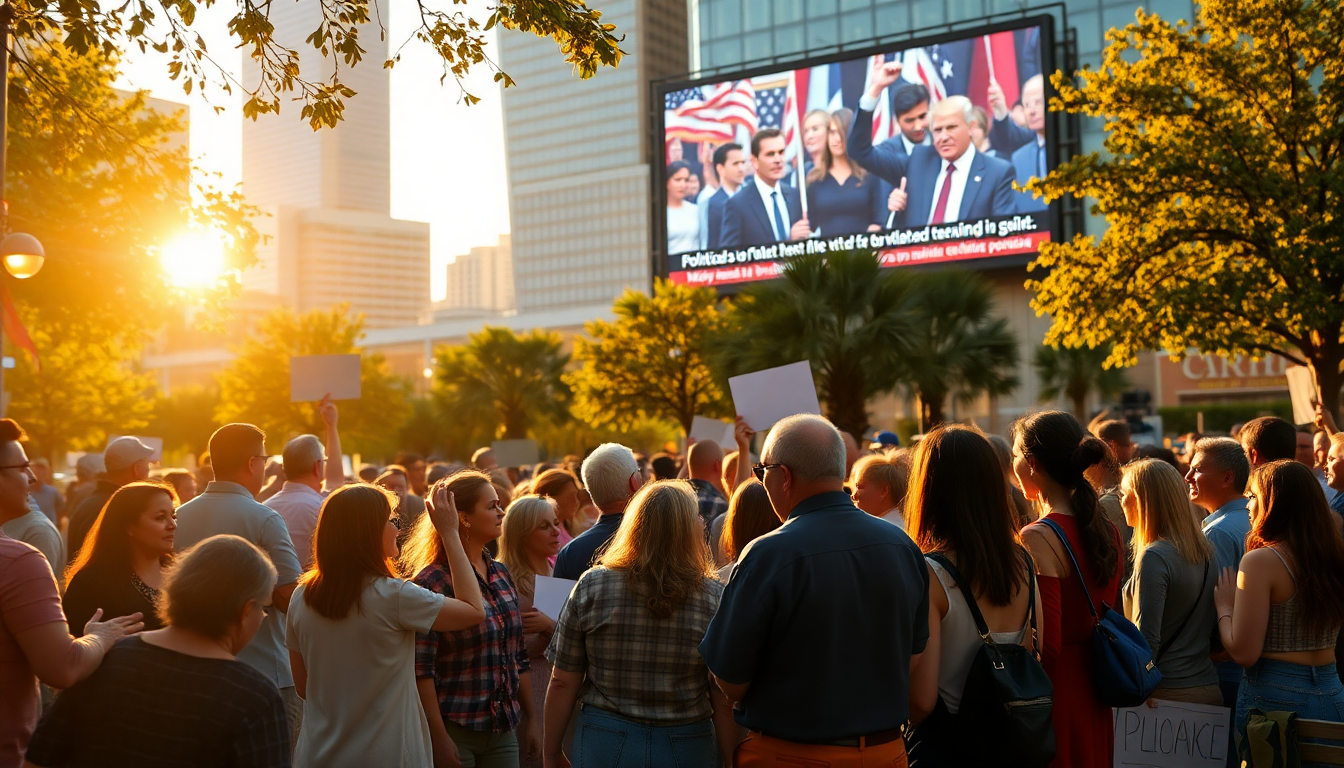Table of Contents
Political climates can really shape our society, and that includes the lives of public figures. Just recently, comments made by former U.S. President Donald Trump about comedian Rosie O’Donnell have caught the media’s eye, highlighting the fascinating overlap between politics and celebrity culture. O’Donnell, who hasn’t held back in expressing her dissatisfaction with Trump’s presidency, is part of a growing wave of celebrities feeling the need to engage with the political issues that directly affect their lives and careers. So, how do these dynamics play out? Let’s dive into the implications for both celebrities and the public, and explore the bigger picture of political engagement among public figures.
The Role of Political Discourse in Shaping Celebrity Narratives
In our hyper-connected world, the conversation between politics and celebrity is more pronounced than ever. When Trump suggested he might revoke O’Donnell’s citizenship, it illustrated just how public figures can become pawns in larger political games. O’Donnell’s sharp rebuttal, calling Trump a “criminal con man,” showcases the bravery some celebrities display when standing up against political figures they see as a threat to societal values. This exchange not only galvanizes public opinion but also sparks discussions around freedom of expression, citizenship, and what it means to be an influential figure in today’s society.
O’Donnell’s choice to move to Ireland—citing the political climate in the U.S.—is a sentiment echoed by many other stars. This trend raises interesting questions: Should public figures feel a responsibility to engage with political issues? And how do their choices affect their fan base? Celebrities like O’Donnell symbolize the struggles many Americans are facing as they navigate a landscape filled with political discontent.
Public Reaction and the Media’s Role
The media plays a pivotal role in amplifying the messages that celebrities want to share. O’Donnell’s critiques of Trump resonate not just with her followers but also capture broader public attention. This showcases the incredible power of social media, where stars can interact directly with their audience, bypassing traditional media filters. O’Donnell’s active presence on platforms like Instagram and TikTok demonstrates how celebrities can spark conversations and encourage political activism among their fans.
However, when public figures voice their opinions on hot-button issues, they often find themselves facing a mixed bag of reactions. Some fans applaud their courage, while others accuse them of elitism. This division highlights the polarized nature of today’s politics and underscores the importance of understanding the audience dynamics at play. Ultimately, how a celebrity navigates their public persona in relation to political discourse can have a lasting impact on their career and legacy.
Looking Ahead: The Future of Celebrity Engagement in Politics
The ongoing dialogue between celebrity culture and politics raises critical questions about what the future holds for public engagement. As political tensions continue to rise, we can expect to see more celebrities taking bold stances, whether through relocation, outspoken opposition, or active participation in social causes. This shift could inspire a broader movement of public figures using their platforms for social change, encouraging their followers to get more involved in political matters.
But with this increased visibility comes the risk of backlash. It will be fascinating to watch how these dynamics unfold, as they will help us understand the intersection of fame and political responsibility. The evolution of this relationship will not only shape individual careers but also influence societal norms regarding political expression and activism. Are we ready for this new chapter in the world of celebrity engagement?


